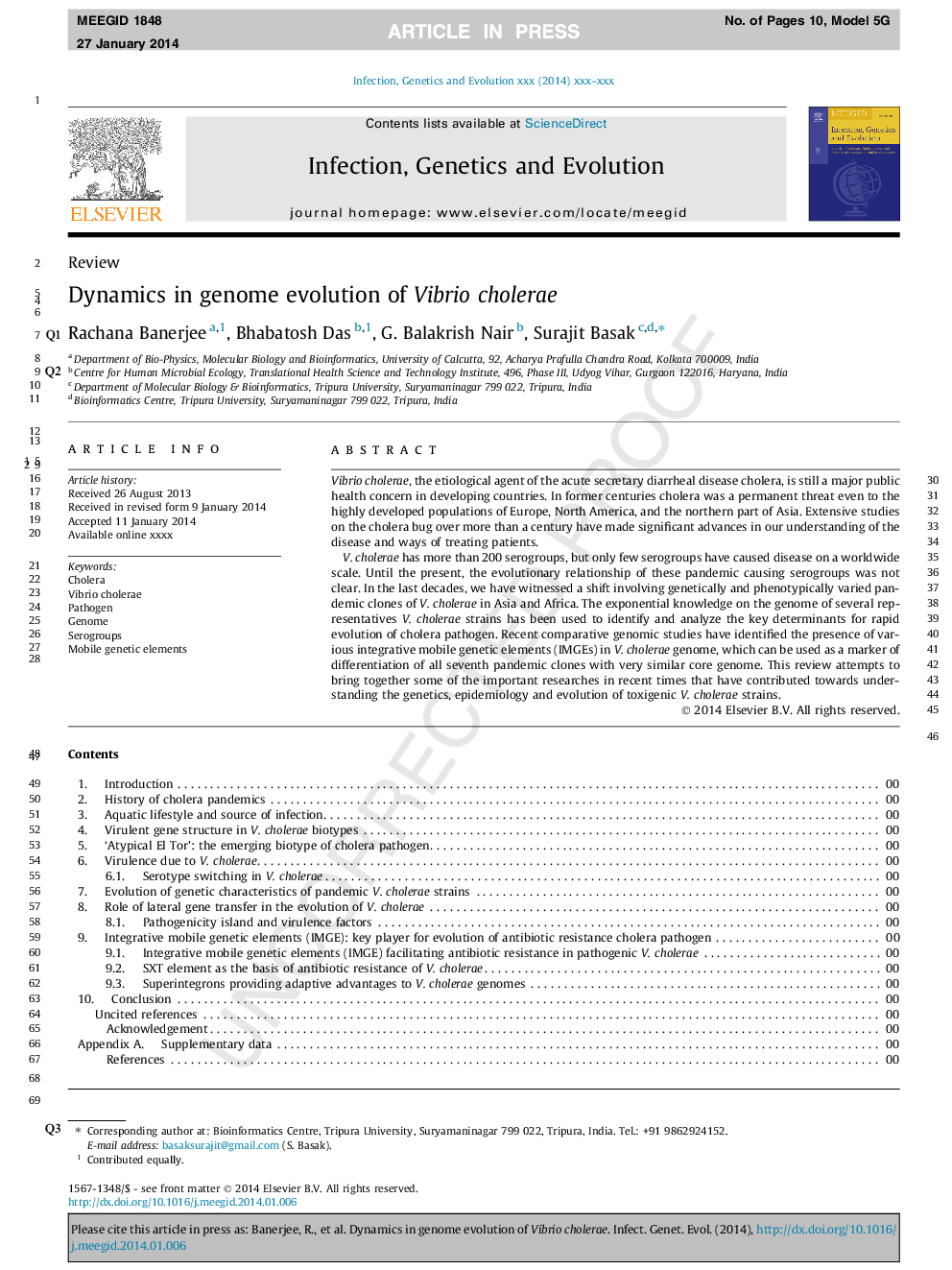| Article ID | Journal | Published Year | Pages | File Type |
|---|---|---|---|---|
| 5909877 | Infection, Genetics and Evolution | 2014 | 10 Pages |
Abstract
V. cholerae has more than 200 serogroups, but only few serogroups have caused disease on a worldwide scale. Until the present, the evolutionary relationship of these pandemic causing serogroups was not clear. In the last decades, we have witnessed a shift involving genetically and phenotypically varied pandemic clones of V. cholerae in Asia and Africa. The exponential knowledge on the genome of several representatives V. cholerae strains has been used to identify and analyze the key determinants for rapid evolution of cholera pathogen. Recent comparative genomic studies have identified the presence of various integrative mobile genetic elements (IMGEs) in V. cholerae genome, which can be used as a marker of differentiation of all seventh pandemic clones with very similar core genome. This review attempts to bring together some of the important researches in recent times that have contributed towards understanding the genetics, epidemiology and evolution of toxigenic V. cholerae strains.
Related Topics
Life Sciences
Agricultural and Biological Sciences
Ecology, Evolution, Behavior and Systematics
Authors
Rachana Banerjee, Bhabatosh Das, G. Balakrish Nair, Surajit Basak,
